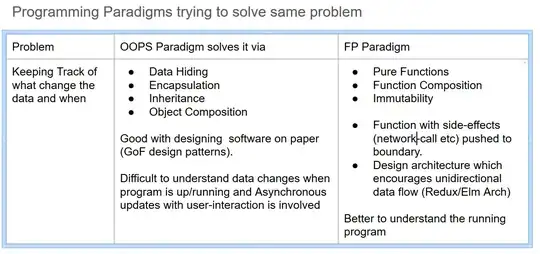The first page makes it abundantly clear that Redux solves a problem that is specific to single page web apps:
As the requirements for JavaScript single-page applications have become increasingly complicated, our code must manage more state than ever before. (from Redux - Motivation)
My own translation is - web apps and the frameworks for creating web apps are messy and as they're running in a browser they are faced with a unique set of problems that just don't arise outside of web apps.
Don't get me wrong - I am not saying web apps are bad, or that the frameworks are bad. It's just that web pages and the entire paradigm about it undeniably never was designed with applications in mind. Some web apps work remarkably well - I love Google Docs for example, it's better than the native app equivalents.
But Redux is just a tool to manage the problems that arise when you have to deal with the limitations and issues that come from creating web apps that run in a browser.
For an iOS app, or a native app of any kind, it doesn't make sense. Object model handles async changes and user interaction with ease. You'll always know what's going on. Rendering different states is not an issue and is automated with MVC and update events.
You're never faced with a situation like web apps are.
** If your architecture is bad, then well, nothing can save you, not even Redux ;)
